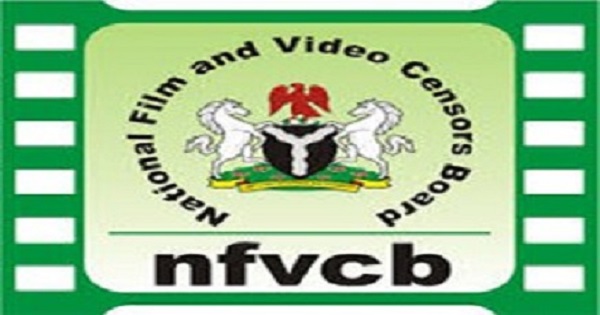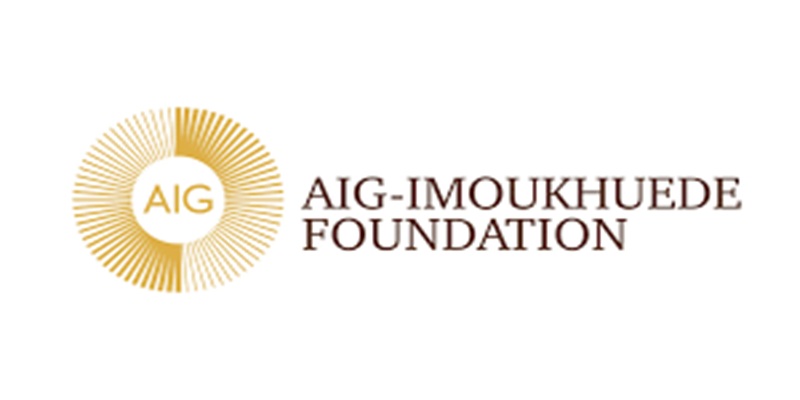Broadcasting
Cinema Operators Rake in N3Bn in Nigeria

Cinema operators in Nigeria are making brisk business if the information given by Mr Adedayo Thomas, executive director, National Film and Video Censors Board (NFVCB), is anything to go by.
Thomas said that 34 Cinemas in the country generated over N3 billion in 2017.
Thomas made the disclosure on Thursday in Warri during the “2018 World Intellectual Property Day” organised by the ‘Friends of the Creator Foundation’ in conjunction with the Faculty of Engineering, Delta State University.
The theme of the event is, “Powering Change: Women in Innovation and Creativity”.
Thomas said that the creative industry, dominated by the womenfolk, was the next business destination in the country with its abundance low hanging fruits.
He urged the women not to see themselves as inferior before their male counterpart stressing that there was a reason for their creation.
“The film industry is the third most lucrative industry aside oil and agriculture.
“In 2017 alone, 34 Cinemas generated over 3 billion and the industry is waxing stronger and dominated by women.
“Our women should not feel inferior, they should continue to take advantage of the creative industry,” he said.
The guest lecturer, Mr Senator Ihenyen said there was need to have a robust Intellectual Property (IP) system that would clearly “accommodate the feminine and masculine in the society’’.
Ihenyen, a Lead Partner in Infusion Lawyers, said that gender disparity was a global phenomenon.
In his lecture titled, “The Masculinity of Intellectual Property, Femininity, and the Malnourished Baby’’, Ihenyen said IP system was tilted to favour the male than the female, particularly, in Africa.
“We need IP system that does not only protect and exploit innovation, and creativity that satisfies the masculine but also empower women innovators and creators.
“While innovation is the bedrock of industrial property, creativity is the cornerstone of copyright,” he said.
In his remarks, Dr Ogaga Ifowodo, Chairman, Board of Trustees of the Friends of the Creator Foundation said the entertainment industry had become a mainstay of the nation’s economy.
“We cannot underestimate the contribution of the Nollywood to the economy; it has employed a lot of youth displaying their creativity.
“IP system protects the actors, writers, painters and others from their products being exploited. The labourers must enjoy the fruits of their labour, that is what IP is all about,” he said.
Highlight of the event was the presentation of award to some distinguished Nigerians in the field of creative and pharmaceutical industries.
There was also a cultural display by troupe from the Department of Theatre Art, University of Benin.
Broadcasting
US invests $115m in counter-drone tech for World Cup security


Drone
The US Department of Homeland Security (DHS) will invest $115 million in counter-drone technology to safeguard the 2026 FIFA World Cup and events marking America’s 250th independence anniversary, creating a dedicated office for rapid drone system deployment.
Homeland Security Secretary Kristi Noem described drones as “the new frontier of American air superiority,” stressing the need to counter threats from drug cartels using unmanned aircraft for smuggling and surveillance, alongside incidents like a 2025 NFL stadium drone flight and 2024 New Jersey sightings.
The funding supports 11 World Cup host cities expecting over one million visitors, building on FEMA’s $250 million grants to those states and addressing risks heightened by cartels’ advancing tech, including a reported FBI tracking plot in Mexico.
DHS has conducted over 1,500 counter-drone missions since 2018, with the new Program Executive Office accelerating acquisitions amid President Trump’s border security push.
Broadcasting
Youth Talent Takes Center Stage as T2 Ignites High-Octane Rap Battles @ Carnival Calabar

The energy at the Carnival Calabar Music Concert reached a new high as T2 introduced a first-ever rap battle platform, giving young Nigerians an electrifying stage to showcase their talent, creativity, and self-expression while competing for exciting prizes.

Held at the U.J. Esuene Stadium, the activation blended pulsating music, vibrant culture, and youthful energy into a dynamic celebration that kept thousands of carnival-goers fully engaged from start to finish.
Eight fearless contestants stepped into the spotlight, going bar for bar in an intense lyrical showdown. Rappers fused local languages, pidgin, and sharp punchlines, creatively weaving the T2 brand into their verses.
Anchored by the energetic hosting duo MC Double I and MC Princess, the rap battles thrilled over 16,000 attendees, including the Governor of Cross River State, Senator Bassey Otu, delivering an unforgettable showcase of youth talent and cultural expression.
With prizes including fridges, gas cookers, sound systems, and airtime top-ups, the competition remained fierce throughout the night. After two high-energy rounds narrowed the field to a five-man final duel, Emmanuel Eye emerged as the overall winner, taking home the grand prize — a fridge.
“I never expected this at all,” Emmanuel said. “I came to the concert like anyone else, and hearing about the T2 rap battle was a surprise. When I got the chance to perform, I just went for it. Being named the overall winner is amazing, and I’m grateful to T2 for creating this platform to showcase our talent.”
Beyond the stage performances, T2’s presence added a digital layer to the carnival experience. As part of its role as Digital Technology Partner of Carnival Calabar, the brand introduced the MyT2 App as a lifestyle companion, while also enabling line reactivations, airtime top-ups, and instant rewards for hundreds of attendees, blending technology seamlessly into the live celebration.
Commenting on the activation, Chinelo Manefo, Specialist, Events and Sponsorship at T2, said:
“The energy from both the rappers and the crowd was incredible. This platform reflects exactly what T2 aims to create — a celebration of youth, creativity, and culture, enhanced by technology that connects people and experiences. Seeing the audience so immersed shows how music and performance can empower the next generation.”
The Carnival Calabar Music Concert, headlined by Tiwa Savage, Timaya, and top local performers, was further energized by T2’s interactive rap battle platform. By blending music, culture, youth expression, and digital innovation, T2 reinforced its commitment to championing Nigeria’s next generation, giving young creatives a stage to shine while enriching how they experience the festival.
Broadcasting
Aig-Imoukhuede Foundation Wrapped Up 2025 with Real Change in Governance, Health, Media Across Africa

Aig-Imoukhuede Foundation has announced its 2025 achievements, marking a year of accelerated impact, systemic reforms and innovation in public leadership and service delivery across Africa.

Aig-Imoukhuede Foundation
A statement issued on Wednesday in Lagos said the foundation strengthened governance, improved primary healthcare, drove digital transformation and elevated media’s role in promoting public sector accountability.
It said the AIG Public Leaders Programme (PLP) trained 72 public sector leaders from Nigeria, Egypt, Tanzania, Cameroon, Zambia, Malawi and Kenya—its fastest growth to date—bringing the alumni network to 309.
These alumni are driving 237 reform projects to enhance public institutions, from faster decision-making to greater transparency, with nine promoted to higher roles for their contributions.
On civil service modernisation, the foundation accelerated digitalisation at the Office of the Head of the Civil Service of the Federation (OHCSF), streamlining 19 processes and achieving a 75 per cent increase in work speed through automated workflows.
It also trained over 400 officials from the Federal Ministry of Justice, Federal Civil Service Commission and Federal Ministry of Innovation, Trade and Investment in digital skills to support the FCCSIP 25 initiative and ongoing digital rollouts.
In healthcare, the Adopt-A-Healthcare-Facility Programme renovated four primary healthcare centres in Edo State, boosting antenatal visits by 73 per cent, immunisation coverage over 100-fold and fully vaccinating 554 children, while supporting 6,788 patients.
The foundation recognised 18 outstanding public servants with ₦500,000 each via the Emily Aig-Imoukhuede Endowment Awards and received a partnership award from the OHCSF for civil service reform efforts.
To empower media, it trained 50 journalists from top Nigerian media houses in impact storytelling, data analysis, visual and ethical reporting to better inform citizens on public sector changes.
Over five years (2021–2025), the foundation invested £2.6 million in PLP, saved ₦2.38 billion for the public sector through capacity building, trained 1,500+ civil servants, upskilled 660 digitally, trained 40 permanent secretaries and awarded 33 scholarships driving seven policy changes.
Other milestones include digitising 5,000 files, automating 333 processes, a 61 per cent efficiency gain, 60 per cent digital file creation at OHCSF, 128 excellence awards, 116 process reforms, 23 advocacy projects, 25 capacity initiatives, 18 podcasts, four healthcare articles, three policy papers, 23 adopted PHCs (four renovated) and 878+ fully immunised children aged 0–9 months.
Executive Vice Chair, Mr Aigboje Aig-Imoukhuede, said: “2025 was a year of real, measurable impact. From training hundreds of public servants to improving healthcare, helping ministries go digital, and equipping journalists to tell stories that matter, our work is making governments work better for citizens and communities across Africa.”

 General News2 days ago
General News2 days agoMinistry of Finance Leads FG-Backed Deal to Deliver Quality Homes and Boost Agriculture in Niger State

 News2 days ago
News2 days agoSERAP Sues INEC Over Alleged ₦55.9Bn Election Funds Diversion

 E-Financial2 days ago
E-Financial2 days agoNDIC Declares Second Liquidation Dividend for Heritage Bank Depositors

 Telecom2 days ago
Telecom2 days agoFG Plans to Invest $460m World Bank Loan in Fibre Infrastructure

 News2 days ago
News2 days agoAI Founders and Developers to Converge in Lagos for AI in Action 2026 conference

 News2 days ago
News2 days agoFG Inaugurates N40Bn CCTV Control Centre for Third Mainland Bridge

 General News2 days ago
General News2 days agoTax Reforms Panel Rejects KPMG’s Critique of New Laws

 Telecom1 day ago
Telecom1 day agoX Suspends Twitter Account for Rules Violation















